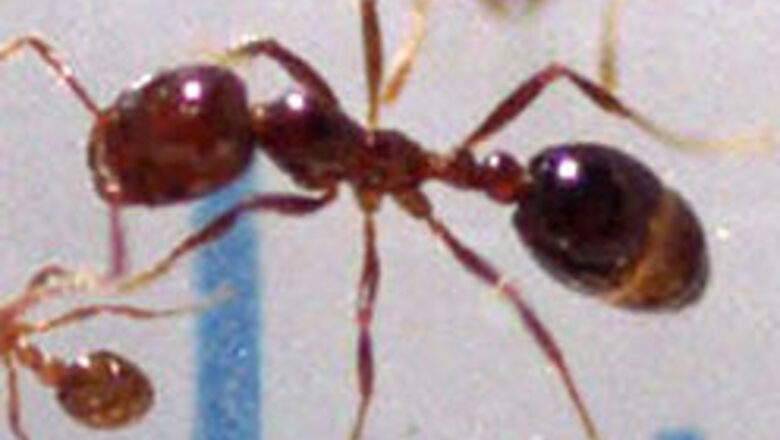
views
Washington: Scientists have finally uncovered the secret behind how ants navigate proportionally huge distances over changing natural landmarks despite having very poor eyesight.
University of Sussex researchers, who conducted the study, found that ants followed a chemical trail left by earlier ants during their first trip to a food site.
This was a slow way of travelling as the ants had to travel with their antennae to the ground.
However, on later trips to the food, the ants used a combination of landmarks and memories of the whole landscape to navigate their way to the food source.
Scientists found that ants used different sets of landmark memories depending on whether they were on their way to food, or whether they were full and heading back to the nest.
“Ants store many memories and have mechanisms to activate the right ones,” says lead researcher, Professor Tom Collett from the University of Sussex's Centre for Neuroscience.
For their study, Prof Collett and his team trained ants to search for food between two cylinders of different sizes and then tested with the training cylinders replaced by two cylinders of the same size.
They found that the ants were only able to search in the predicted place when a patterned background was introduced as a retrieval cue.
“To show that ants use visual memory to navigate we trained ants to find food 10cm from a cylinder. We then doubled the size of the cylinder and the ants searched for the food at 20cm away where the retinal size of the landmark was the same,” Prof Collett said.
“To know which cylinder was which, ants needed the patterned background to be in a different position on the retina when they faced one or other cylinder. Accurate memory retrieval often relies on ants storing a large panorama,” he added.
Prof Collett and his team now believe that their research could have significant benefits in the development of autonomous robots, since “insect behaviour is much more 'machine-like' than that of mammals”.
“A better understanding of ant navigation could help to develop autonomous robots. Insect behaviour is much more 'machine-like' than that of mammals, and ants are a lot less flexible in their use of navigational strategies. This stereotypy makes it easier to understand how their strategies operate and to design robots that navigate following similar principles," he said.
The team is now planning further experiments that will reveal new levels of detail about insect visuo-motor behaviour and allow the construction of models of memory retrieval.
Chief Executive of BBSRC, Professor Julia Goodfellow said: “Cognitive systems research gives us the opportunity to learn more about the ways that animals, including humans, process information to learn, reason, make decisions and communicate. BBSRC is working with other Research Councils and funders to support new interdisciplinary research in this area.”



















Comments
0 comment